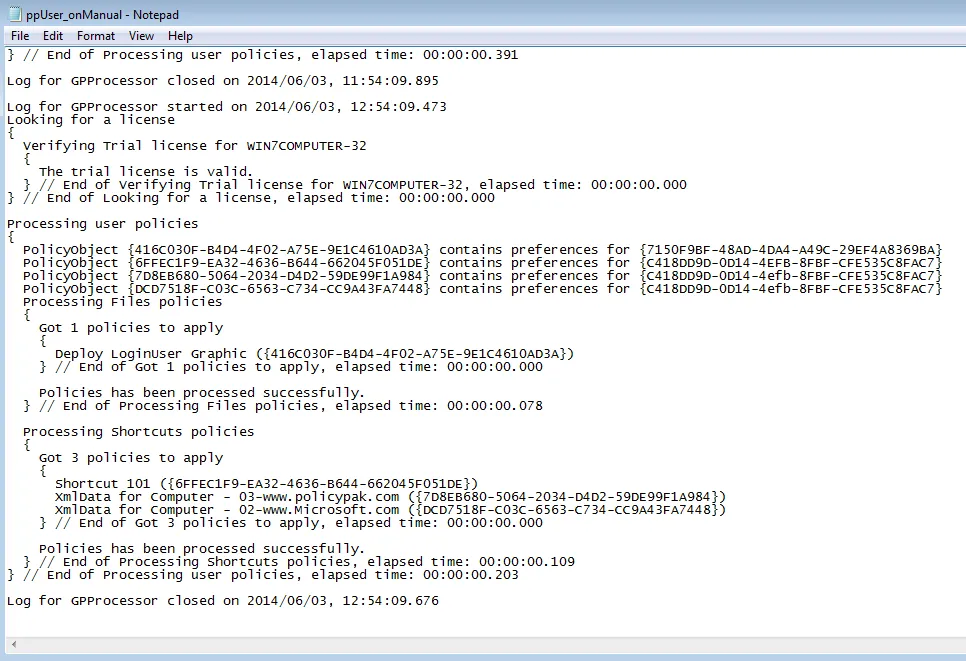Logging Locations
Endpoint Policy Manager File Associations Manager log files are found in
%Programdata%\PolicyPak\PolicyPak File Associations Manager. This is because Endpoint Policy
Manager File Associations Manager affects the computer (and all users on that computer).It's also
possible there might be some user-side logins in
%appdata%\local\PolicyPak\PolicyPak File Associations Manager, but they will not be useful since
all Endpoint Policy Manager File Associations Manager work happens on the Computer side.
There are several files to check in the folder
%Programdata%\PolicyPak\PolicyPak File Associations Manager. These files are:
ppUser_OnLogon.log: This log file is updated when Group Policy applies at the time of login (and items are set for the User side, not the Computer side).ppUser_Switched.log: This log file is updated when Group Policy applies at the time of login (and items are set for the Computer side).ppUser_OnGroupPolicy.log: This log file is updated when Group Policy applies in the background (when you run GPupdate or Group Policy applies in the background).ppUser_onPolicyChanged.log: This log file is updated when Group Policy applies in the background or when a method other than the Group Policy method is used (e.g., Microsoft Endpoint Manager [SCCM and Intune] and Endpoint Policy Manager Cloud).
Start troubleshooting by verifying that the following conditions are true:
- You have the Group Policy Object (GPO) (or file).
- You have a collection within the GPO.
- You have the rules within the collection.
Figure 55 and Figure 56 are examples of Endpoint Policy Manager File Associations Manager logs with some important items highlighted.

Figure 55. An example of a Endpoint Policy Manager File Associations Manager log.

Figure 56. Highlights from the Endpoint Policy Manager k File Associations Manager log.
If needed, logs can be automatically wrapped up and sent to
support@endpointpolicymanager.com with the PPLOGS.EXE command on any endpoint
where the client-side extension is installed.